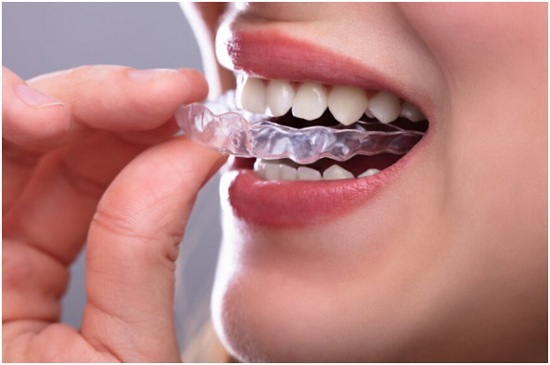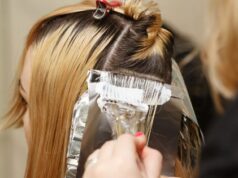If you ever wondered what do mouth guards help you with exactly then you have come to the right place. In this article, we will explore some of the most notable ways that custom mouth guards can help you at night. So, let’s start.


1) You and Your Partner can Sleep Easy if You Have Snoring Issues
A common issue that is tied to bruxism is snoring. This can be especially irritating if you are sleeping together with someone as it will disturb their sleep as well as possibly your own. With this in mind, mouth guards can actually be used to help this problem. They readjust the lower jawline slightly during your sleep so that the airway in your throat is continuously open, hence eliminating the snoring issue. Be careful though, as non-custom-made mouth guards will not be as effective as their custom-made counterparts.
2) The Perfect Night Protection against Teeth Grinding
This is probably the main reason and the most famous one for getting mouth guards. According to Ceders Sinai, teeth grinding affects up to 1/3 of adults during daytime and around 1 in 10 during nighttime. This is a large number of people that are affected by it, so it shouldn’t be disregarded or treated as a passing thing. Teeth grinding can result in the soreness of facial muscles, the neck and a serious deterioration of the health of your teeth. This can have lasting consequences and if you have any suspicions of teeth grinding then you should schedule an appointment with your dentist to get it checked out. Usually, the dentist will be able to tell immediately if you are grinding your teeth in your sleep. Grinding your teeth during the entire night wears them out and results in damage that is plain as daylight. The worst-case scenario is that this can even change the shape of your face because of the lower and upper jaws moving rapidly closer and closer together than they should be.
3) Fewer Headache Problems
Another side effect of teeth grinding is headache problems, these can occur during the night and end with you waking up with a headache. Teeth grinding and clenching often leads to headaches and neck pains, if you notice a pattern where you are waking up with one or the other, it is time to schedule an appointment to get yourself sorted out.
4) Less Pain in Your Jaws
Jaw pain can happen frequently to people and even not be related to teeth grinding. Night-time mouth guards are not exclusively used for teeth grinding, in reality, they are just as useful for most other types of pain that are really good at canceling out jaw pains and accumulated tension.
5) Helps with Soft-Tissue Damage
The tissue that we have in our mouth is very sensitive, with this in mind, we need to be as delicate as we can with it. That is where the mouth guards come in handy. You can accidentally bite your tongue or bite a part of your tissue while you are chewing. It can be a common occurrence for this to happen during night time, especially biting your tongue and that is where mouth guards come in. They serve as great protection against any damage you might deal to your tongue, lips, or the inside of your cheeks. So if you have a reoccurring problem with this, definitely look into buying a mouth guard and you should notice the changes very fast.
6) Help with Obstructive Sleep Apnea
Obstructive sleep apnea is a sleeping-related breathing disorder that occurs when the muscles that support the soft tissues in your throat, such as your tongue and soft palate, temporarily relax. When these muscles are relaxed, the airway in your throat is completely shut for a few moments resulting in oxygen being cut off. This can be an extremely irritating disorder that can constantly prevent you from sleeping. There are several ways of treating it, one is by using positive pressure to make sure that the airways remain open, while the other would be getting mouth guards. Custom-made mouth guards hold your lower jaw in the required position in order for your throat to remain open and for you to receive a stable and uninterrupted supply of oxygen. It’s a great way of making sure your tongue and throat muscles don’t collapse back and block the airway.









